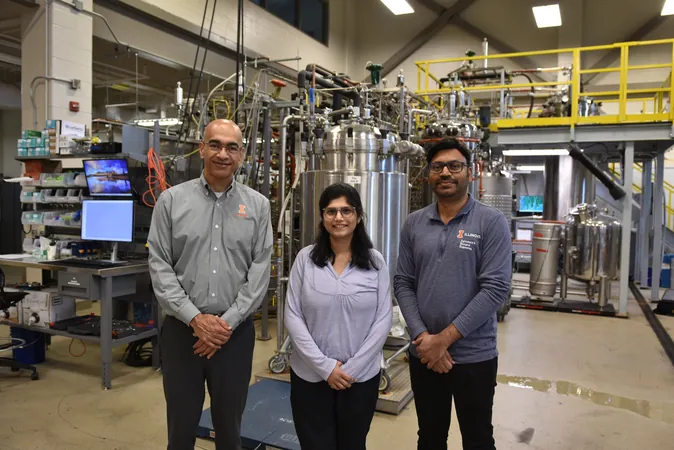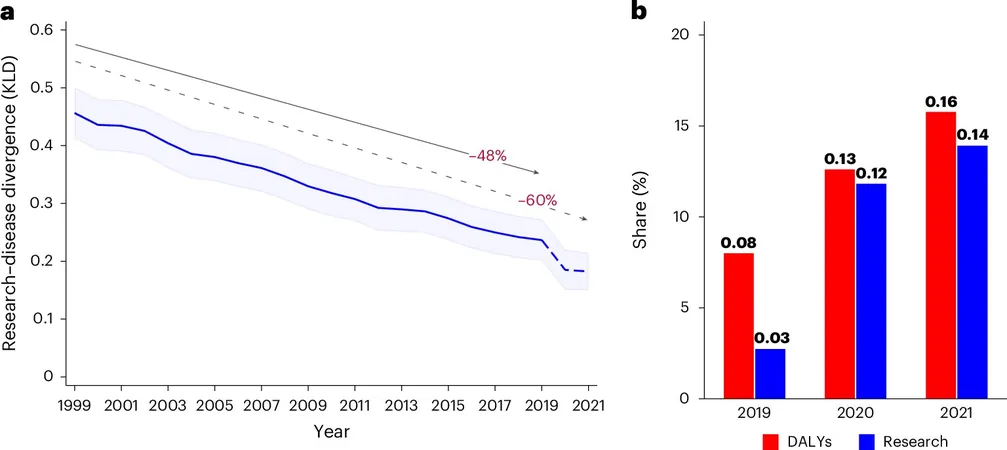
Unlocking the Secrets of Aging: Can We Achieve Immortality?
2025-09-05
Author: Jacob
A Talk of Immortality at a Military Parade
At the grand military parade in Beijing on September 3, 2025, a striking conversation unfolded between China's President Xi Jinping and Russia's Vladimir Putin. The topic? The intriguing realm of organ transplants and cutting-edge biotechnology for life extension. The human pursuit of eternal life has captivated imaginations since the days of science fiction lore and even the thrilling escapades of characters like James Bond. In 'Die Another Day,' a North Korean colonel exploits gene therapy to seek immortality. Interestingly, North Korea's own Kim Jong Un was also present at this notable ceremony, weaving a narrative of autocracy and life beyond the natural limits.
Decoding Aging: The Science Behind Our Lifespan
Aging is fundamentally a process of information loss within our bodies. At the heart of this is DNA, which stores genetic information much like a digital file that must be transcribed by a biological mechanism known as the epigenome. Renowned biologist David Sinclair emphasizes how environmental factors can influence which genes are activated, highlighting the age-old debate of nature versus nurture. Research breakthroughs by Nobel laureates John Gurdon and Shinya Yamanaka revealed that mature cells can potentially revert to a younger, stem-cell-like state—offering tantalizing hints that we may one day be able to 'turn back the clock' on aging.
The Mysteries of Lifespan: Why Mice and Whales Are So Different?
Why do mice live a mere 3 to 4 years while whales can thrive for up to 200 years? Researchers believe the secret lies in reproductive strategies. Rodents, which can reproduce shortly after birth, don’t seem to need long lifespans for evolutionary success. In contrast, humans reach sexual maturity around ages 12 to 15 and can reproduce for several decades, which contributes to our increased life expectancy. Furthermore, the longevity of a species is often tied to its evolutionary history; while humans have been around for a few hundred thousand years, whales boast a legacy that spans at least 30 million years.
The Digital Frontier: Could Our Minds Achieve Immortality?
What if immortality could transcend biology entirely? The notion of uploading our minds into a digital format—thus preserving our memories and personalities—might soon not be just a fantastical dream. This concept, known as whole brain emulation (WBE), posits that our consciousness could exist in a digital realm, potentially freeing us from the constraints of biological life. Futurist Ray Kurzweil and neuroscientist Henry Markram, founder of the Blue Brain Project, are pioneering this vision, striving to create detailed simulations of the brain. While the energy demands for such technology are staggering, the implications for our understanding of consciousness are profound.
A Century of Medical Advances: Doubling Our Lifespan
In the last century, modern medicine has enabled us to double our life expectancy, primarily by reducing infant mortality rates and combating many diseases. As we continue to unveil the enigma of aging, the environmental concerns of the mid-20th century have evolved. Once fixated on fears of population growth, today's discussions are less about sheer numbers and more about the implications of increased longevity. The potential for physical or even virtual immortality presents a new challenge for sustainability—one that requires thoughtful consideration in a rapidly changing world.









 Brasil (PT)
Brasil (PT)
 Canada (EN)
Canada (EN)
 Chile (ES)
Chile (ES)
 Česko (CS)
Česko (CS)
 대한민국 (KO)
대한민국 (KO)
 España (ES)
España (ES)
 France (FR)
France (FR)
 Hong Kong (EN)
Hong Kong (EN)
 Italia (IT)
Italia (IT)
 日本 (JA)
日本 (JA)
 Magyarország (HU)
Magyarország (HU)
 Norge (NO)
Norge (NO)
 Polska (PL)
Polska (PL)
 Schweiz (DE)
Schweiz (DE)
 Singapore (EN)
Singapore (EN)
 Sverige (SV)
Sverige (SV)
 Suomi (FI)
Suomi (FI)
 Türkiye (TR)
Türkiye (TR)
 الإمارات العربية المتحدة (AR)
الإمارات العربية المتحدة (AR)